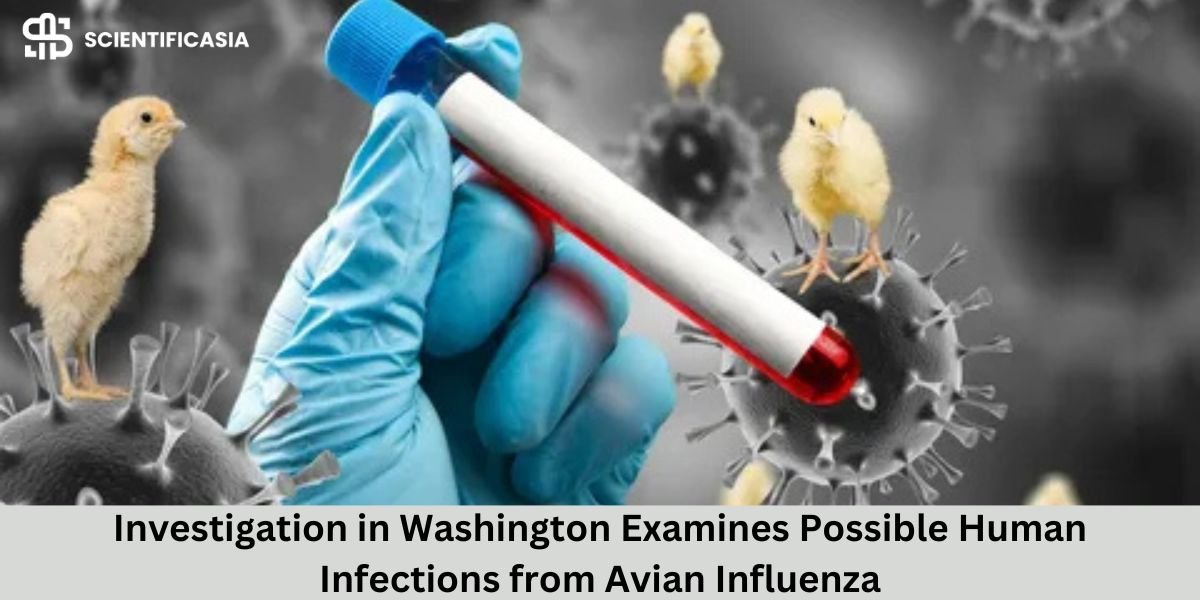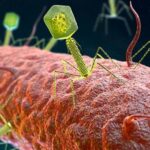ScientificAsia: Employees who handled contaminated poultry experienced symptoms.
At a commercial egg farm in Franklin County, four agricultural workers who had come into contact with sick birds were confirmed presumptively positive for avian influenza. The patients were treated with antiviral medicine and had moderate symptoms. More people on the farm are still awaiting testing, and the amount of cases being looked into could alter.
These are Washington State’s first suspected human H5 virus cases that are being looked at. The cases occurred at a farm where a chicken avian influenza outbreak had occurred. On October 15, the Washington State Ministry of Agriculture announced test results indicating that 800,000 birds had avian influenza and were killed.
Screening at the Washington State Public Health Lab was handled by the Benton-Franklin Health District (BFHD), which also performed health checks on exposed employees. We have sent the samples to the Centers for Disease Control and Prevention (CDC) for final virus analysis and confirmation.
Benton-Frankin Health District, Washington State Department of Agriculture, and the CDC are working with the Washington State Department of Health (DOH) as part of the regional response to this epidemic.
In addition to monitoring exposed workers for signs of avian influenza, DOH and BFHD have given personal protective equipment to agricultural workers and are offering testing, vaccinations, and treatment to those who exhibit symptoms.
Employees or contractors who might have worked on a poultry farm in Franklin or Benton counties since October 7 should call BFHD at 509-460-4550 if they experience symptoms like respiratory infections or red eyes.
Washington has become the sixth state to report human cases of H5N1. The H5N1 bird flu outbreak has been affecting poultry, livestock, and wildlife in multiple states. ” Since the virus was first found in Washington’s poultry in 2022, we have closely monitored its spread. Our state is well-prepared with the knowledge, partnerships, and resources needed to lessen its impact on our community,” said Washington Health Secretary, Dr. Umair Shah.
The DOH has collaborated with the Washington Department of Fish and Wildlife and the Washington State Department of Agriculture to respond to H5N1 detections in the state’s animals and to track the health of individuals who have come into contact with infected animals. The DOH has collaborated with several animal health partners to offer educational resources and personal protective gear to dairy and poultry farmers.
Avian influenza Type A viruses cause the disease, which is naturally present in wild aquatic birds all over the world. H5N1 viruses can kill many poultry species, such as guinea fowl, ducks, geese, pheasants, quail, chickens, and turkeys, in addition to infecting other kinds of birds and occasionally mammals. Humans can occasionally contract avian influenza viruses and become unwell.
The majority of cases where humans have contracted avian influenza have occurred following extended, intimate interaction with avian influenza-infected animals or settings.
Although the CDC currently believes that there is little risk to the general public from this H5N1 avian influenza, those who use personal protective equipment or are exposed to infected birds, cattle, or other possibly affected domestic or wild animals daily are at a higher risk and should take precautions.
The community is reminded by DOH to never handle or permit dogs near deceased birds. To learn more about safety measures, go to https://doh.wa.gov/avian-influenza
Recommended Readings:
Hushed Spread: There is a big threat alarm raised for not controlling the bird flu
Officials Warn Public After Addison County Horse Tests Positive for EEE













